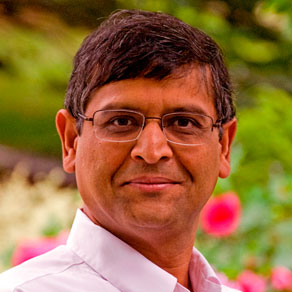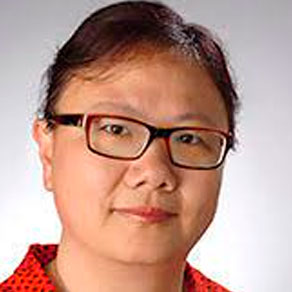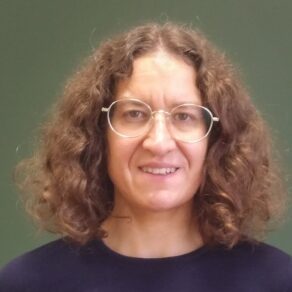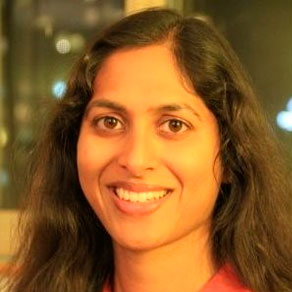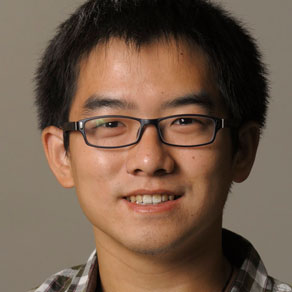
Bhiksha Raj
[introductory] An Introduction to Quantum Neural Networks [with Rita Singh, Daniel Justice and Prabh Baweja]
Summary
Quantum Computing is a new computing paradigm promising algorithmic accelerations for many real world applications. Machine Learning is one such field where Quantum Computing may, or may not, offer significant improvements. In this series we will lecture on the basics of Quantum Computing before introducing Quantum Machine Learning and then finally ending with a walk through a tutorial showcasing current state of the art Quantum Machine Learning.
Syllabus
- A New Way of Compute (Raj)
- Mapping the New Compute to Quantum Hardware (Raj)
- Programming a Quantum Computer – Basics (Justice)
- Machine Learning Overview (Raj)
- Where Can Quantum Computers Improve Classical ML? (Justice)
- Programming Quantum Machine Learning – Tutorial (Baweja)
- Conclusion (Raj)
References
Wittek, Peter. “Quantum Machine Learning: What Quantum Computing Means for Data Mining.” Academic Press, 2014.
Biamonte, Jacob, et al. “Quantum Machine Learning.” Nature 549.7671 (2017): 195-202.
Schuld, Maria, et al. “An introduction to quantum machine learning.” arXiv preprint arXiv:1803.07680 (2018).
Broughton, Michael, and Peter Wittek. “Quantum machine learning: a classical perspective.” Quantum Information Processing 16.9 (2017): 168.
Killoran, Nathan, et al. “Continuous-variable quantum neural networks.” Physical Review Research 1.2 (2019): 023001.
Farhi, Edward, et al. “A quantum approximate optimization algorithm.” arXiv preprint arXiv:1411.4028 (2014).
Lloyd, Seth. “Quantum algorithms for supervised and unsupervised machine learning.” arXiv preprint arXiv:1307.0411 (2013).
Verdon, G., et al. “Quantum machine learning in feature Hilbert spaces.” Proceedings of the Royal Society A 473.2201 (2017): 20170166.
Schuld, Maria, et al. “Supervised learning with quantum computers.” arXiv preprint arXiv:1712.05304 (2017).
Grant, Edward, et al. “Hierarchical quantum classifiers.” Physical Review A 98.3 (2018): 032331.
Pre-requisites
Basic understanding of machine learning algorithms. Linear algebra. Basic programming abilities in Python or Javascript.
Short bios
Bhiksha Raj is a Professor in the School of Computer Science at Carnegie Mellon University. His fields of research include speech and audio processing, machine learning and deep learning, privacy and security, and quantum machine learning. He has several hundred of papers on these subjects and also teaches several popular courses on them at CMU and elsewhere. Dr. Raj is a Fellow of the IEEE.
Rita Singh is a Professor in the School of Computer Science at Carnegie Mellon University. Her fields of research include voice and audio forensics, cybersecurity and, lately, quantum computing. Her work on voice forensics and security has been presented in the US House of Representatives, and she has been invited as a featured speaker at various scientific, industry, and policy forums, such as the World Economic Forum and the Congreso Futuro. She is also the author of several hundred of papers, an edited volume, and a landmark book, “Profiling Humans from Their Voice”. She also teaches a variety of courses at CMU including a popular one on quantum machine learning.
Daniel Justice is a Software Engineer at Carnegie Mellon University’s Software Engineering Institute, where he works primarily on the develop of quantum algorithms for computing and machine learning. He is an experienced educator and has taught several popular courses, at CMU and elsewhere, on quantum computing, and is one of the leading experts on the subject.
Prabh Baweja is a machine learning engineer at Apple Inc. with a special interest in quantum computing, particularly as applied to machine learning problems. He holds a Masters’ degree from Carnegie Mellon University, in which he focused on the area. Prabh’s specialty lies in the application of quantum machine learning techniques to neural networks.



